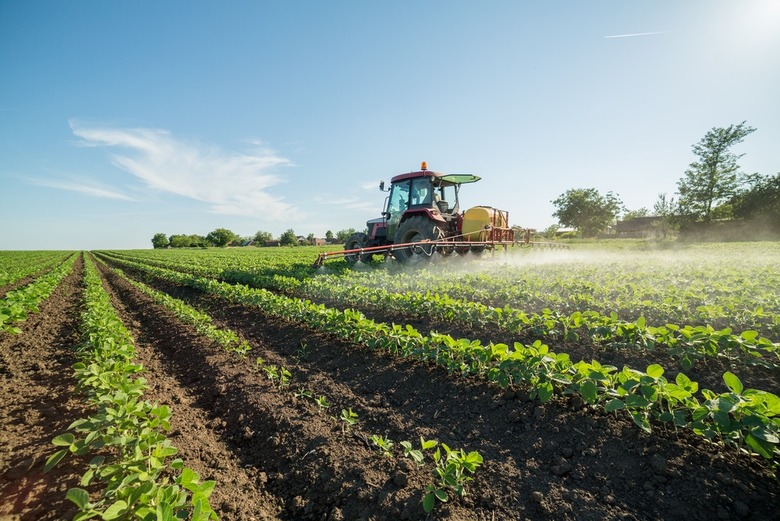FDA To Start Testing Food For Residues From Glyphosate, Widely Used Pesticide And Probable Human Carcinogen
The U.S. Food and Drug Administration will begin testing a number of foods for residues from glyphosate, the widely used pesticide that serves as the active ingredient in Roundup, a line of weed killers from Monsanto and other brands. The World Health Organization has classified glyphosate as a probable human carcinogen.
Earlier this year, a report on pesticide residue levels from the USDA found that those levels did not pose a health risk to the American public, but the USDA did not conduct testing for glyphosate, which is used to treat key crops including sugar beets, wheat, soybeans, and corn.
The USDA is technically responsible for the safety of meat, poultry, and egg products, while the FDA is responsible for the safety regulation of all other foods. Both agencies were criticized by the U.S. Government Accountability Office for failing to test for "the most-used agricultural pesticide" and failing to disclose the limitations of its testing processes to the public.
The lack of glyphosate testing is particularly troublesome because in 2011, the USDA did conduct its only known series of glyphosate tests on 300 soybean samples, and found that 271 contained residues from the pesticide. A spokesperson for the FDA confirmed to Civil Eats that the agency "is now considering assignments for fiscal year 2016 to measure glyphosate in soybeans, corn, milk, and eggs, among other potential foods."
Interestingly, the FDA decision to begin conducting tests for glyphosate residues comes just a day after a panel of independent scientists issued a consensus statement in the Environmental Health journal, urging the EU and U.S. governments to recognize the exposure risks of glyphosate.
Pointing to multiple studies suggesting that glyphosate exposure has led to endocrine disruption and "acute diseases and chronic health problems," the team noted that, "since the late 1970s, the volume of glyphosate-based herbicides (GBHs) applied has increased approximately 100-fold," and that currently, "regulatory estimates of tolerable daily intakes for glyphosate in the United States and European Union are based on outdated science."
"Taken together, these conclusions all indicate that a fresh and independent examination of GBH toxicity should be undertaken, and that this re-examination be accompanied by systematic efforts by relevant agencies to monitor GBH levels in people and in the food supply, none of which are occurring today," the study concluded. "The U.S. National Toxicology Program should prioritize a thorough toxicological assessment of the multiple pathways now identified as potentially vulnerable to GBHs. The urgency of such work was reinforced in March 2015 when the IARC concluded glyphosate is a probable human carcinogen.
"We are aware of current limits on, and demands for, public funding for research. In the absence of government funds to support essential GBH research, we recommend that a system be put in place through which manufacturers of GBHs provide funds to the appropriate regulatory body as part of routine registration actions and fees. Such funds should then be transferred to appropriate government research institutes, or to an agency experienced in the award of competitive grants. In either case, funds would be made available to independent scientists to conduct the appropriate long-term (minimum 2 years) safety studies in recognized animal model systems. A thorough and modern assessment of GBH toxicity will encompass potential endocrine disruption, impacts on the gut microbiome, carcinogenicity, and multigenerational effects looking at reproductive capability and frequency of birth defects."
When reached for comment, a spokesperson for Monsanto told The Daily Meal, "glyphosate's 40-year history of safe use has been upheld by the U.S. EPA and regulators around the world following decades of study and review. No data have ever indicated residue levels of more than a fraction of EPA's very conservative Allowable Daily Intake or any level of concern. If FDA does move forward with residue testing in a scientifically rigorous manner, we are confident it will reaffirm the safe use of this vital tool used safely and effectively by farmers, landowners and homeowners around the world."
